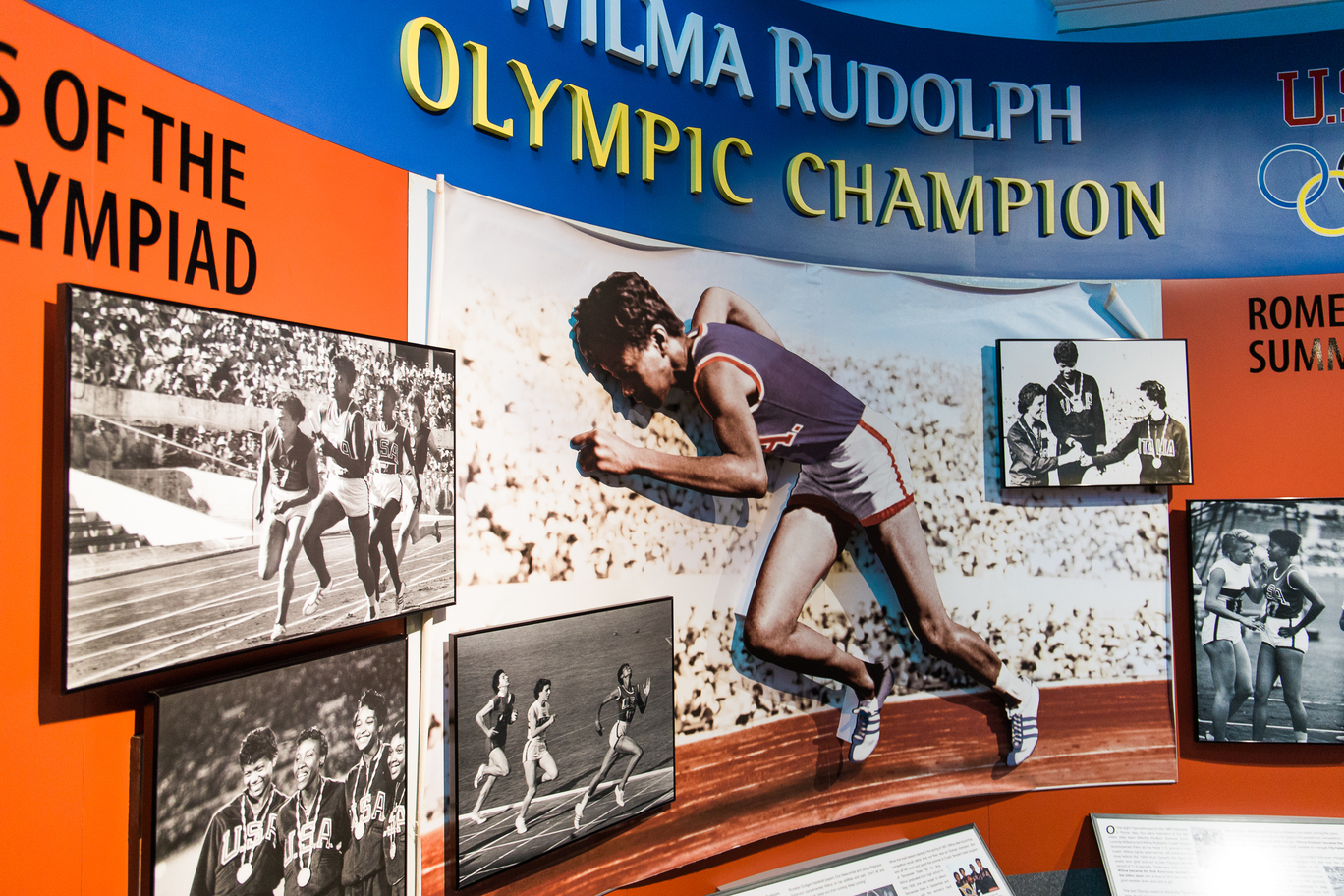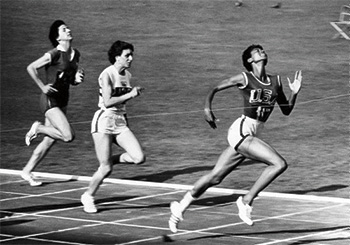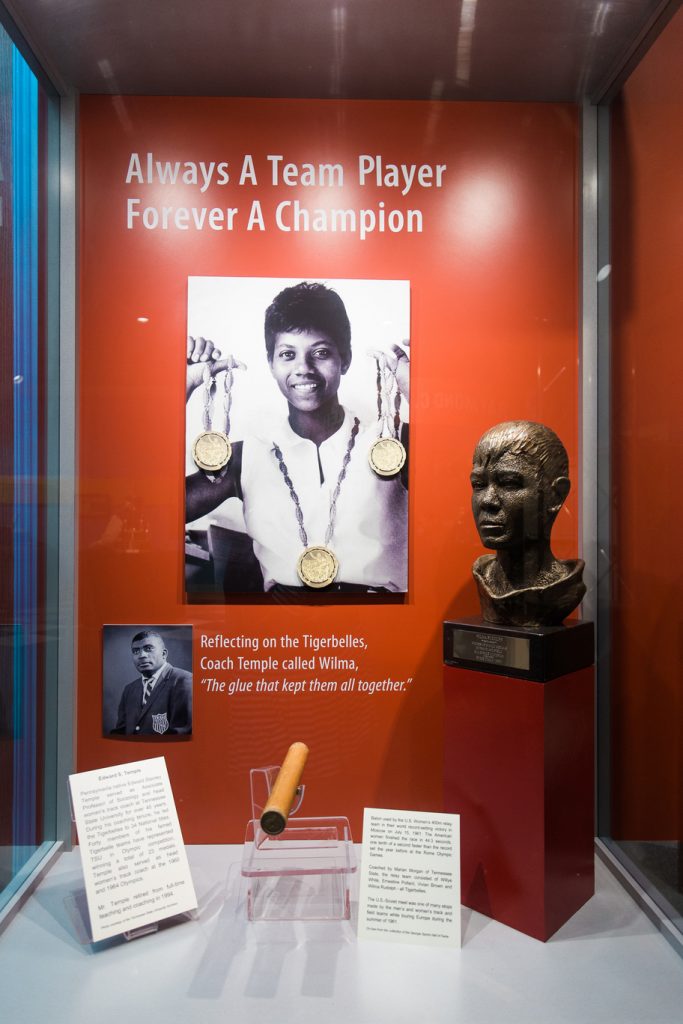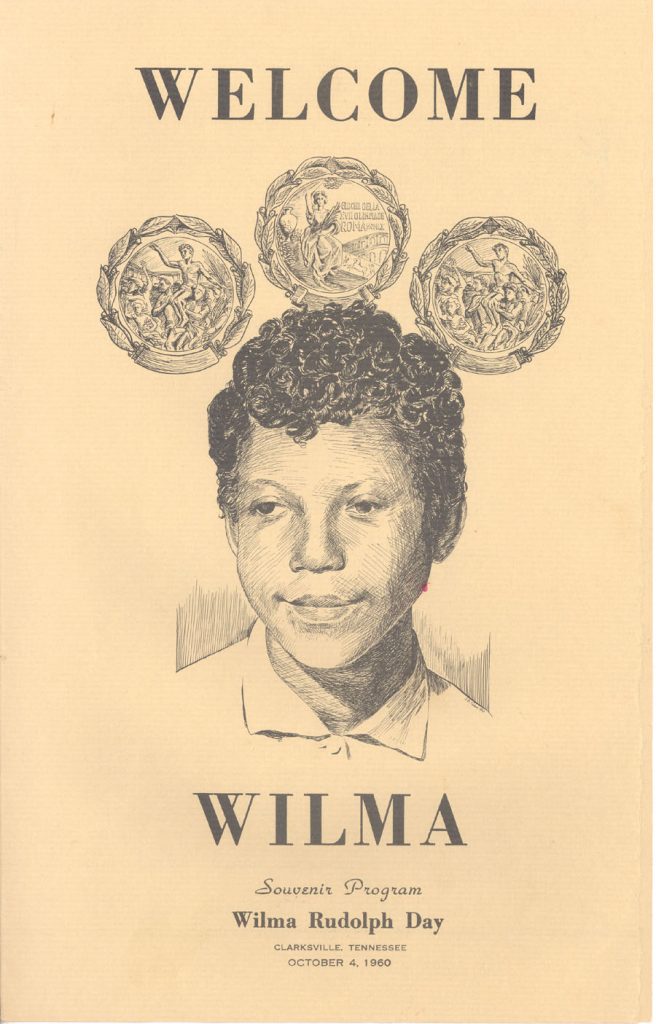
Written by Meghan E. Gattignolo
If Clarksville had to choose one favorite hometown hero, that person would undoubtedly be Wilma Rudolph.
Told she would never walk again after a battle with polio, Wilma learned to run – and run fast. Not only could she run, she became “the fastest woman in the world” and jettisoned herself onto a stage few people get to experience. She competed on a world stage, and won. For those who knew her, Wilma was also the kindest and the brightest of people. For the final installment of this year’s Women’s History Month series, we discuss why Wilma Rudolph remains one of Clarksville’s most amazing women.

Wilma Rudolph, 1960 Rome Olympics
Public domain via Wikimedia Commons
She Broke Records
Wilma’s greatest accomplishment and claim to fame was becoming a three-time gold medal winner in track-and-field events within a single Olympics. She did this in 1960, a time when the Civil Rights movement was just getting underway in the United States and when few paths in life would garner her many opportunities. Wilma became the first Black person and the first woman to accomplish a feat that is still regarded as one of the biggest achievements in Olympic history. She was just 20 years old.
The 1960 Rome Summer Olympics wasn’t Wilma’s first rodeo, however. She competed at the previous Summer Olympics in Melbourne when she was only 16, and medaled with bronze. She medaled at her first Olympics, as a teenager.
During this time, the Olympics largely ignored women’s events when reporting results. In fact, according to David Maraniss, author of Rome 1960: The Olympics that Changed the World, people “tended to regard the women’s events as not the real Olympic Games.” Wilma showed the entire world how ridiculous that assumption was as she raced past the cameras during the first widely-broadcasted Olympic Games in North America.

Challenge & Champions exhibit at the Customs House Museum & Cultural Center
Photo by Kathryn Ely
She Defied Expectations
Wilma was able to accomplish these feats because she worked incredibly hard to overcome some tough physical circumstances. Born premature, Wilma started life small and compromised in June 1940. Her childhood was rife with illness: she contracted pneumonia, scarlet fever and polio. Polio – which can cause paralysis or weakness in parts of the body – has a reputation for permanently crippling people. Famously, President Franklin D. Roosevelt was afflicted with polio, which confined him to a wheelchair throughout his time in office. After her bout with polio, doctors told Wilma she would never walk again. However, along with an abundance of encouragement from her many siblings, countless visits to a Nashville doctor with her mother and intense hard work on her part, Wilma was able to overcome a similar fate, and not only walk – but become the “fastest woman in the world.”

Wilma Rudolph Day Souvenir Program
October 4, 1960
Archives Collection, Customs House Museum & Cultural Center
She Was a Social Leader
After her triumphant return from the Olympics, a welcome home celebration complete with a massive parade was planned in Clarksville for Wilma by Tennessee’s state governor. The problem was that Clarksville was within the bounds of a segregated South, and public events were segregated. Wilma refused to participate in any ceremony in her honor unless it was an integrated event. Wilma’s demands proved to be the right move. The governor agreed and Wilma’s parade and related events became Clarksville’s first integrated public event.
A local Shoney’s refusal to serve Wilma in 1963 – even in spite of her celebrity – threw a national spotlight on racism and segregation in the South. Before the decade was over, segregation as a normalized daily expectation would be in Clarksville’s past, thanks in no small part to the attention Wilma drew to the issue.
Wilma Rudolph will always be Clarksville’s favorite daughter. She was born and raised here, went through school here and overcame her greatest obstacles here before the rest of the world knew her name. The legacy of her impact on women’s sports cannot be overstated, as her Olympic success undoubtedly open the doors for women in athletics and brought new attention to women’s sports. The Customs House Museum & Cultural Center always has Wilma’s story on exhibit. Come check out artifacts and pictures of Wilma’s life and career and join us in celebrating Wilma Rudolph.
References:
ESPN.com: Rudolph ran and world went wild
Breaking the color barrier: School integration in Clarksville (theleafchronicle.com)
The race to air the 1960 Summer Olympics | EW.com
1960: A Pivotal Year For The Olympics : NPR
Wilma Rudolph – Biography, Olympic Gold Medalist, Track and Field
Interview with Wilma Rudolph (wustl.edu)

Meghan E. Gattignolo is a freelance writer and longtime Clarksville, TN resident. She loves to obsess about historical subjects and annoy her family daily with unsolicited random facts. Meghan holds a B.A. in History from Austin Peay State University and lives in town with her husband and two daughters.